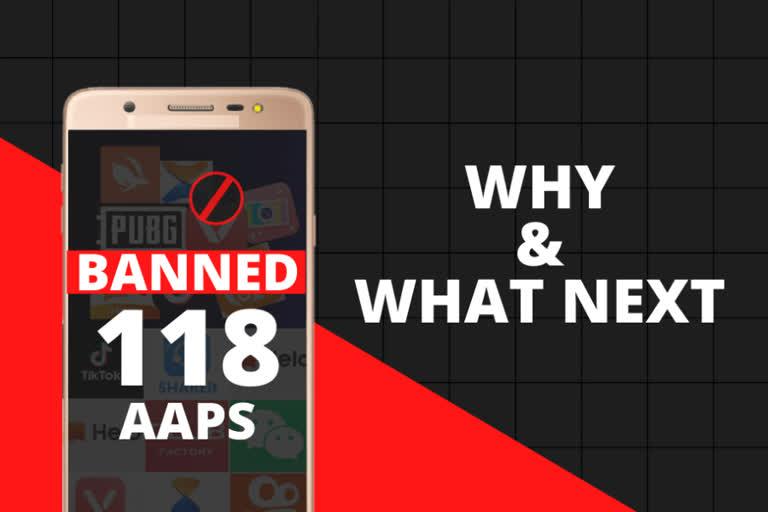Delhi: PUBG Mobile and 117 more Chinese apps have been banned in India under section 69A of the Information Technology Act on account of security threats to the nation. This decision is a targeted move to ensure the safety, security, and sovereignty of Indian cyberspace. It came amid soaring tensions between India and China following their deadliest standoff in the Ladakh region.
The government of India has blocked a lot of gaming, art, video, messaging, and other Chinese apps. The list of banned apps includes PUBG Mobile Nordic Map: Livik, PUBG Mobile Lite, CamCard, Baidu, Cut Cut, VooV, Tencent Weiyun, Rise of Kingdoms, and Zakzak, WeChat Work, and WeChat reading, Ludo World, Cleaner, Alipay, Sina News, VPN for TikTok, Arena of Valour and more are among the banned mobile apps which pose concerns of data privacy. Most of these apps are available on Google Play Store and Apple App Store. But we expect them to be removed soon. There will be no updates or upgrades. In addition, once ISPs and telcos block access to internet protocol (IP) addresses to these Apps, the user will have no option but to stop using them.
To know about the complete list of banned apps, click on the link below:-
Government bans 118 mobile apps including PUBG
Col. Inderjeet explains, " As a matter of fact, whenever you download Apps onto your mobile phones, some permissions are necessary, such as a bank's authentic app may need access to your personal information to ascertain that it is indeed you who is accessing the app. However, as security experts have been pointing out, most apps installed on the device try getting permission for some totally irrelevant function or feature of the handset."
Col. Inderjeet further adds that any mobile app seeking more permissions than it is required is not only dangerous but has the potential to harm the user either financially or through misusing personal data, thus violating user privacy. However, not many users even think twice before granting blanket permissions while installing an app.
- Mainly, do check the access to mobile phone resources sought by all Apps. Permission for mobile phone gives the App access to your phone number, cell network information, call status, voicemail, VoIP, and allows it to read and edit call logs and even redirect calls to another number.
- Any malicious App, if given this permission, could spy on your phone usage behavior and even make calls without your knowledge or approval.
- In India and anywhere across the world, people are not only using Chinese apps but are also using mobile devices from brands with origin in that country. Many of these Chinese phones come bundled with pre-installed apps (known as bloatware) that cannot be uninstalled. At most, the user can disable the app.
- Surprisingly, most of the Chinese Apps surreptitiously seek permissions from the user categorized into nine groups. This includes body sensors, calendar, camera, contacts, location, microphone, phone, SMS, and Storage.
- Permission for phone resources gives App access to your mobile number, cell network information, Location Details, call status, Voicemail, VoIP, and allows it to read and edit call logs, and even redirect calls to another number.
- Any malicious app, if given this permission, could spy on your phone usage behaviour and even make calls without your knowledge or approval. Thereafter they tend to steal data and route it to servers in China which are a major threat to data privacy and security of the country.
A ban on PUBG Mobile was expected ever since the government started banning Chinese apps back in July due to data privacy-related issues. 59 Chinese developed or originated apps that were a big threat to data privacy & security including TikTok, CamScanner, ShareIt, Xender, and more. So the total number of Chinese apps banned lately rounds up to a total of 224 Mobile Apps.
Col. Inderjeet further explains that these mobile apps are found stealing and surreptitiously transmitting users’ data in an unauthorized manner to servers that have locations outside India. Apps raise serious concerns that these Apps collect and share data in a surreptitious manner and compromise personal data and information of users that can have a severe threat to the security of the Country.
Also Read: Deepfakes: The dark side of Artificial Intelligence
